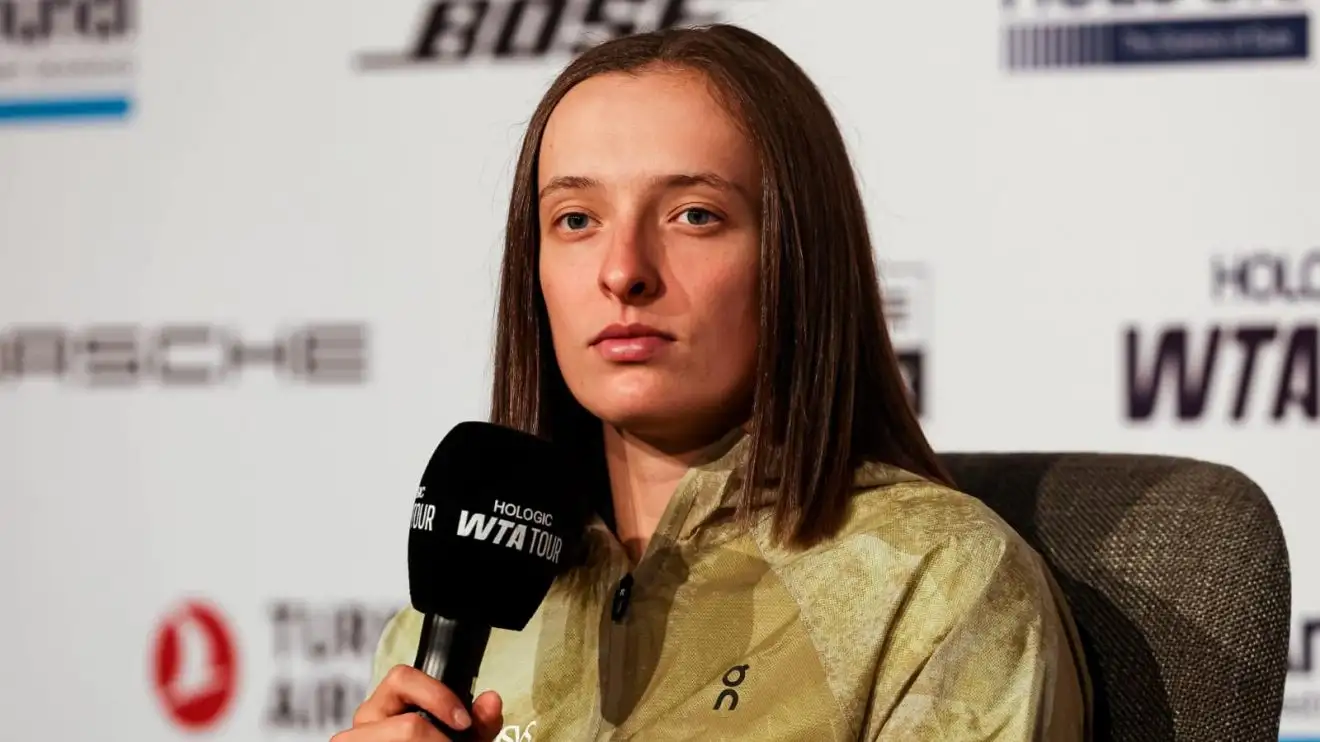
Iga Swiatek, the 23-year-old Polish tennis superstar and five-time Grand Slam champion, has never shied away from speaking her mind. As the world No. 2 prepares for her third-round match against Linda Noskova at the 2025 Madrid Open, she’s turned the spotlight on a growing concern among players: the WTA’s relentless tournament schedule. In a candid press conference, Swiatek took a subtle but pointed swipe at the governing body, highlighting the pressure players face to compete in mandatory events. “I think the WTA is kind of forcing us more to play the events, even when sometimes we would pass them,” she said, underscoring the strain of a calendar that leaves little room for rest or strategic preparation.
Swiatek’s remarks come at a pivotal moment in her season. The defending Madrid Open champion, who dominated the 2024 clay season with titles in Madrid, Rome, and Roland Garros, is under pressure to defend 4,195 ranking points. Her 2025 campaign has been a mix of brilliance and setbacks, including a stunning quarterfinal loss to 19-year-old Alexandra Eala at the Miami Open and a sixth consecutive defeat to Jelena Ostapenko in Stuttgart. These losses, coupled with a doping suspension in 2024 that cost her the No. 1 ranking to Aryna Sabalenka, have fueled her frustration with the WTA’s demands. The organization’s rules require players to compete in all Grand Slams, WTA 1000 events, and six WTA 500 tournaments, with penalties like “zero-pointers”—where points from the lowest-performing events are nullified—for non-compliance. Swiatek fell foul of this rule last year, losing her top ranking after failing to meet WTA 500 requirements.
The Madrid Open, a WTA 1000 event, is a microcosm of Swiatek’s challenges. After a bye in the first round, she battled back from a shaky start to defeat Eala 6-4, 6-3, avenging her Miami loss. Yet, her 25 unforced errors in the first set hinted at the toll of a packed schedule. “Honestly, I’m not that direct usually, but I would blame this performance on the lack of practice before because I didn’t have time,” Swiatek said earlier this year after a Dubai loss to Mirra Andreeva, a sentiment echoed by peers like Sabalenka and Coco Gauff, who’ve also criticized the Middle East swing’s tight turnaround post-Australian Open. Swiatek’s Madrid press conference revealed a deeper issue: the WTA’s structure, unlike sponsor obligations, limits player autonomy. “If I would need to not play some kind of event, there wouldn’t be any situation where I would be forced,” she noted, contrasting flexible partnerships with brands like Rolex and Porsche with the WTA’s rigid mandates.
Swiatek’s critique isn’t new—she’s been vocal since 2024, when she called the schedule “crazy” and warned it could make tennis “less fun.” Her 2024 doping ordeal, a one-month ban for a trace amount of trimetazidine from contaminated melatonin, forced her to miss three events, exacerbating the pressure to maximize points elsewhere. “The second half of last year was extremely challenging,” she wrote on social media, describing “three weeks crying daily” amid the fallout. The WTA’s scheduling, she argues, compounds such challenges, leaving players little time to recover physically or mentally.
The broader tennis landscape reflects Swiatek’s concerns. Carlos Alcaraz and Alexander Zverev have slammed the ATP’s similar demands, while Sabalenka has admitted struggling health-wise in the Middle East. The WTA’s penalties for skipping events, designed to ensure top players boost tournament prestige, have drawn ire for prioritizing commercial interests over athlete well-being. Swiatek, who hasn’t won a title since her 2024 French Open triumph, emphasized the need for balance: “I think it’s important to have partnerships that fit you… that’s the only way to go.” Her Madrid campaign, where she’s yet to drop a set, shows her resilience, but the looming clay season—Rome, Roland Garros—tests her ability to thrive under pressure.
As Swiatek battles for the No. 2 ranking against Jessica Pegula and Coco Gauff, her words resonate as a call for change. The WTA’s recent AI-generated image blunder for her Madrid match only added to the scrutiny, but Swiatek’s focus remains on the court and the bigger picture. With increased security following a harassing incident in Miami, she’s navigating a sport that demands as much off the court as on it. Her plea for a fairer schedule is a rallying cry for players striving to make tennis sustainable—and fun—again.
Leave a Reply